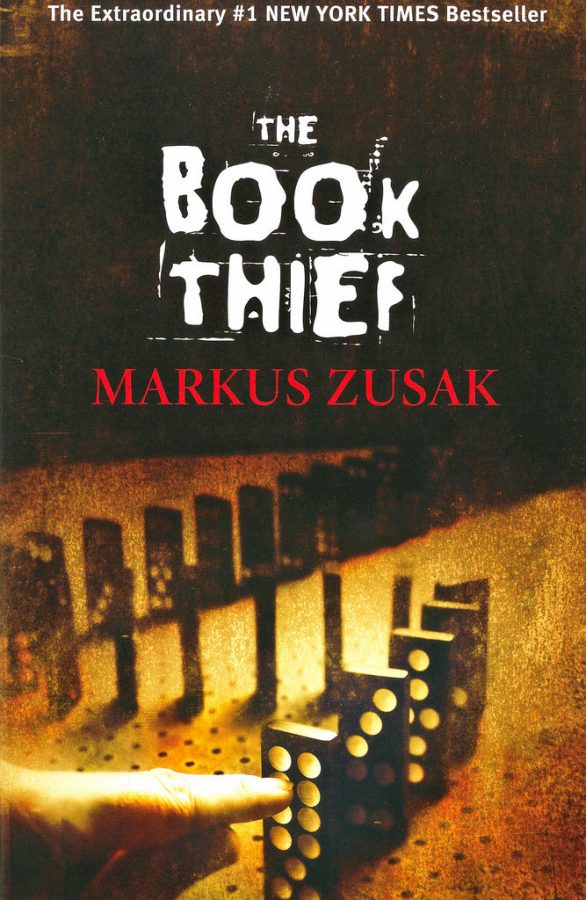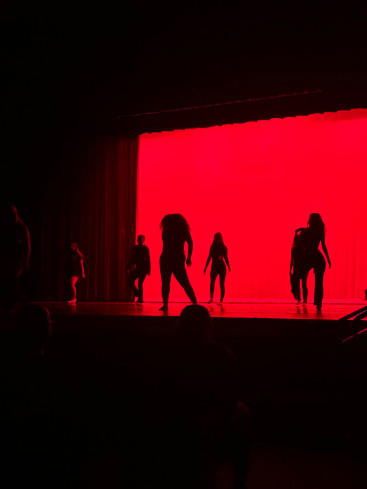Unravel the Pages
The Book Thief is stealing hearts across the world
The cover of The Book Thief shows that, like dominoes, one event can lead to a chain of events that are all connected to each other. The language and how the book is written, with huge social and political change going on in the background, gives readers a very different perspective of causation.
October 12, 2018
Shining a light on a new perspective, talking about uncomfortable history, and telling a great story is hard to find all wrapped up in one book. However, Mark Zusak manages to cover all of this in his novel, The Book Thief, which was published in 2005. This coming of age story follows a young girl in Nazi Germany, but is metaphorically about the human race’s perspective on death, injustice, history, and love.
Liesel, at nine-years old, is taken into foster care because her mother could no longer afford to take care of her. Her new home is in Munich, Germany, during the rise of Hitler to power. Liesel is forced to form her own opinions on the politics and ethics of her time, while also just trying to be a kid with her best friend, Rudy, who lives a few houses down from her.
Throughout the story, Liesel learns about herself and the world around her through learning to read and write at home with her papa. She would paint words she did not know on the basement walls, and when it was filled, a new coat of paint was spread across the wall, and she began again. Her determination, paired with a narration from death, personified makes for a unique read.
The Book Thief has been translated into over thirty languages since its publication and became an international best-seller, along with being adapted into a film in 2013. Junior Gray Doby appreciated the subtlety of the chronological order of the book; “It shows the development of the characters over the years without dates being thrown in your face, but rather with historical events such as Kristallnacht, which gives you a subtle notion of how time passes.”
This novel offers a different perspective into what it meant to grow up poor in Nazi Germany, at which time a lot of confusing political changes were put into place. The way the book is written makes it easy to understand, and the extensive use of figurative language keeps the reader wanting more.












